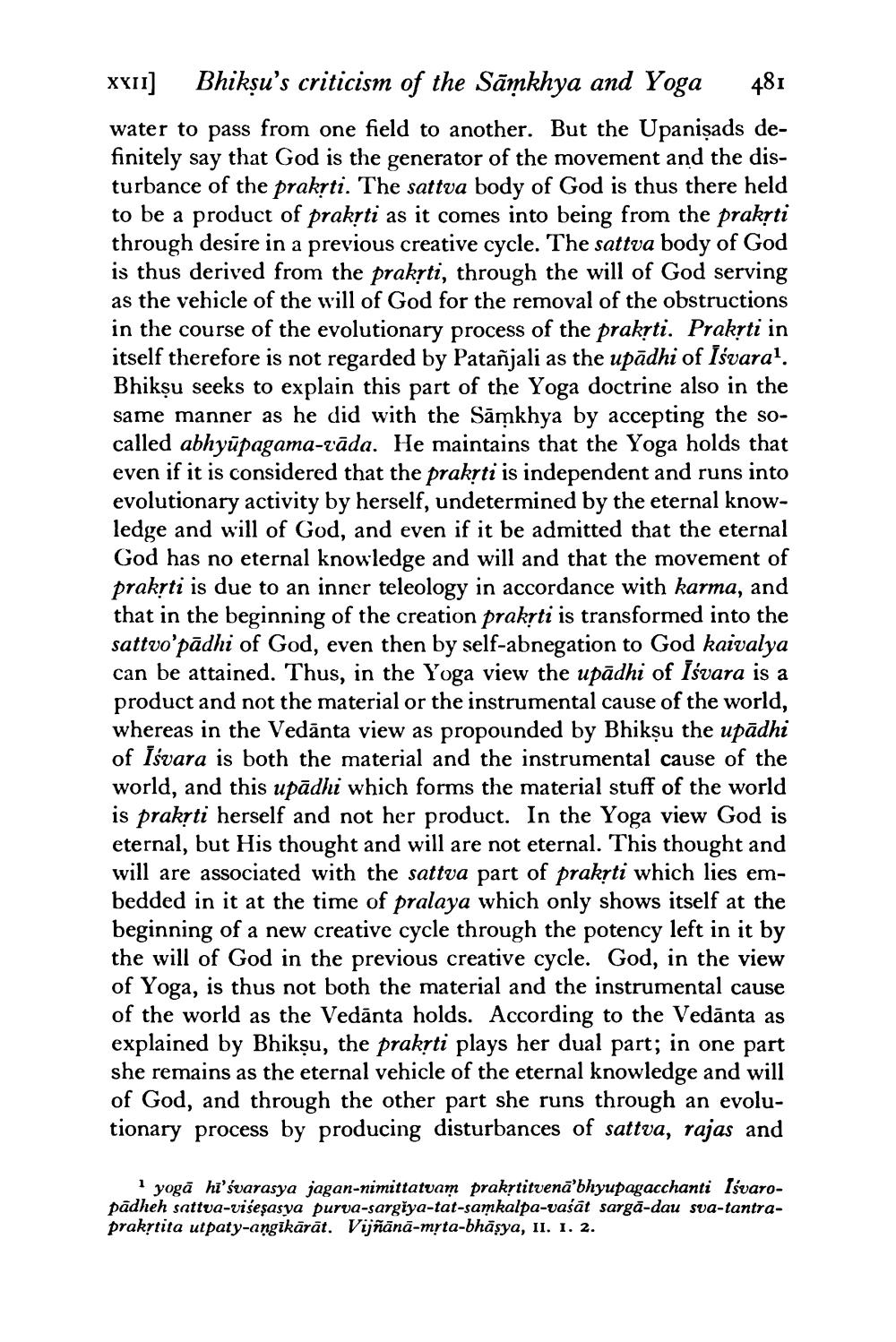________________
XX11] Bhikṣu's criticism of the Sāmkhya and Yoga 481 water to pass from one field to another. But the Upanişads definitely say that God is the generator of the movement and the disturbance of the prakrti. The sattva body of God is thus there held to be a product of prakrti as it comes into being from the praksti through desire in a previous creative cycle. The sattva body of God is thus derived from the prakrti, through the will of God serving as the vehicle of the will of God for the removal of the obstructions in the course of the evolutionary process of the prakrti. Prakrti in itself therefore is not regarded by Patañjali as the upādhi of Isvara'. Bhikṣu seeks to explain this part of the Yoga doctrine also in the same manner as he did with the Sāmkhya by accepting the socalled abhyūpagama-rāda. He maintains that the Yoga holds that even if it is considered that the prakrti is independent and runs into evolutionary activity by herself, undetermined by the eternal knowledge and will of God, and even if it be admitted that the eternal God has no eternal knowledge and will and that the movement of praksti is due to an inner teleology in accordance with karma, and that in the beginning of the creation prakrti is transformed into the sattvo'pādhi of God, even then by self-abnegation to God kaivalya can be attained. Thus, in the Yoga view the upādhi of Išvara is a product and not the material or the instrumental cause of the world, whereas in the Vedānta view as propounded by Bhikṣu the upādhi of Išvara is both the material and the instrumental cause of the world, and this upādhi which forms the material stuff of the world is prakrti herself and not her product. In the Yoga view God is eternal, but His thought and will are not eternal. This thought and will are associated with the sattva part of prakrti which lies embedded in it at the time of pralaya which only shows itself at the beginning of a new creative cycle through the potency left in it by the will of God in the previous creative cycle. God, in the view of Yoga, is thus not both the material and the instrumental cause of the world as the Vedānta holds. According to the Vedānta as explained by Bhikṣu, the prakrti plays her dual part; in one part she remains as the eternal vehicle of the eternal knowledge and will of God, and through the other part she runs through an evolutionary process by producing disturbances of sattva, rajas and
1 yogā hi'śvarasya jagan-nimittatvam prakrtitvenā'bhyupagacchanti Isvaropādheh sattua-viseşasya purva-sargiya-tat-samkalpa-vaśāt sargā-dau sva-tantraprakstita utpaty-angikārāt. Vijñānā-mrta-bhāsya, II. 1. 2.




